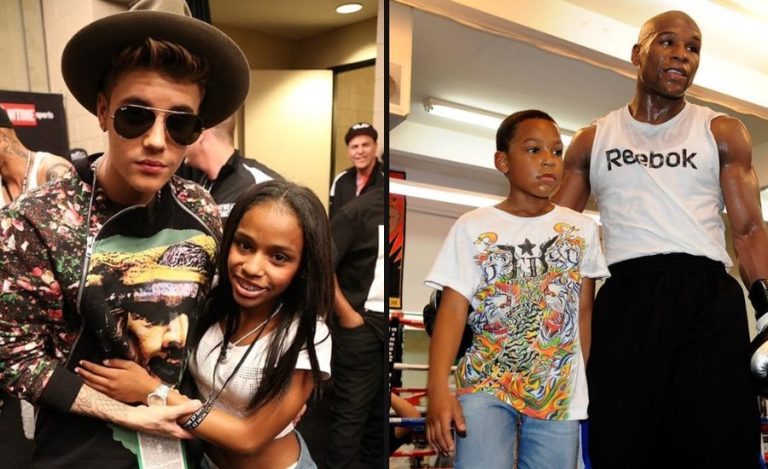Do Alec and Kaleb Get Paid For Commercials Bio, & More
Introduction
The foundation of contemporary marketing is advertising, which is crucial for showcasing and promoting goods and services to target consumers. There’s a complicated and subtle world behind the scenes, beyond the captivating images and catchy jingles that draw in viewers. The actors are essential to this field because they are crucial in making these commercials come to life.

Among these talented individuals, actors like Alec and Kaleb have distinguished themselves through their impactful performances. Understanding how actors like them are compensated for their work in commercials sheds light on the intricate dynamics of the advertising industry and the value placed on their contributions.
Who Are Alec and Kaleb?
Alec and Kaleb have quickly gained recognition in the realm of commercial advertising, distinguished by their charm and adaptability. Their unique qualities have not only attracted the interest of advertisers but have also resonated with audiences. Their diverse backgrounds and career trajectories add an intriguing dimension to their roles, especially when considering their compensation for their work in commercials.
Their rise in the industry highlights their skill in connecting with varied audiences and delivering compelling brand messages. This leads to a key question: what is the structure of Alec and Kaleb’s compensation for their work in commercials? Understanding how they are remunerated provides insight into the value placed on their contributions and the factors that influence their earnings in this competitive field.
Biography of Kaleb Wolf
Growing up in the Chicago region, Kaleb Wolf faced many difficulties at a young age because of his arthrogryposis, a condition that creates stiff, rigid joints, which limits movement.
When Kaleb was younger, he went to Shriners Hospitals for Children in Chicago for specialized care. There, he had multiple orthopedic procedures that significantly enhanced his quality of life and joint flexibility.
Despite these health challenges, Kaleb always had a positive and friendly demeanor, especially when he was at Shriners. He was a standout pick when the hospital was looking for a genuine and endearing young actor for their advertisements because of his natural charm and optimism.
In addition to his acting career, Kaleb remains actively engaged with charitable efforts linked to Shriners Hospitals. As an ambassador for the institution, he participates in various events, using his personal story of resilience and optimism to motivate and inspire others facing similar challenges.
Background on Alec and Kaleb
Two well-known patients of Shriners Hospitals are Alec Cabacungan and Kaleb-Wolf De Melo Torres. The 22 nonprofit institutions that comprise Shriners institutions are committed to treating a variety of juvenile ailments, including burns, cleft lip, and orthopedic difficulties, regardless of a family’s financial position.

Alec has had osteogenesis imperfecta, a brittle bone disease, managed by Shriners since he was a small child. His bones are fragile and break readily with little effort due to this illness.
Alec has overcome these obstacles to develop into a self-assured and well-spoken young man who regularly talks at marketing events on behalf of Shriners.
Conversely, Kaleb has faced significant medical challenges, requiring multiple surgeries to address his condition.
His engaging narrative and lively demeanor have elevated him to a key position in Shriners’ marketing campaigns. Due in large part to Alec and Kaleb’s experiences, support and awareness have been generated for the hospitals that have been essential to their care.
The Future of Commercial Compensation
Looking ahead, the future appears promising for actors like Alec and Kaleb. Their talent and growing popularity position them well for emerging opportunities both within and outside of commercial work. Ongoing efforts to promote fair compensation and inclusive representation are expected to foster a more equitable environment in the industry.
By embracing these changes, the advertising industry not only enhances its creative output but also strengthens its commitment to authenticity and inclusivity, paving the way for diverse and impactful performances.
Are Alec and Kaleb Paid for Their Appearances?
Determining the compensation for Alec and Kaleb in Shriners commercials involves several nuanced factors. Unlike traditional actors, Alec and Kaleb are real patients whose appearances are integral to supporting Shriners Hospitals’ mission to raise awareness and funds.
Here’s a closer look at the considerations impacting their compensation:
Shriners Hospitals’ Non-Profit Status
The organization that runs Shriners Hospitals for Children is non-profit.
This status influences how they handle compensation for individuals like Alec and Kaleb. Unlike for-profit enterprises, non-profits may have different practices when it comes to compensating those who support their cause.

Role as Ambassadors
As representatives of Shriners Hospitals, Alec and Kaleb inspire and involve the public by sharing their personal stories. Such positions might not always come with the typical cash pay found in many non-profit organizations. Rather, their engagement may be interpreted as a means of returning the favor or making a contribution to the institution that offers them vital services.
Ethical Considerations
The question of compensating child ambassadors in non-profits involves ethical considerations. While paying Alec and Kaleb acknowledges their contribution and ensures fair treatment, there is debate about whether their involvement should be more about advocacy than financial gain.
Legal Requirements
The Coogan Law, which protects child actors by requiring a portion of their earnings to be placed in a trust, may not apply directly to Alec and Kaleb’s situation. Since they may not be classified as traditional employees, the legal obligations regarding payment and trust accounts could differ.
Compensation Structure
Given these factors, Alec and Kaleb might receive compensation, but it is likely structured differently than that of professional child actors in for-profit settings. They might receive a stipend, reimbursement for expenses, or contributions to a fund, rather than a direct salary.

Overall, while Alec and Kaleb’s compensation for their roles in Shriners commercials may vary, it reflects the unique nature of their involvement and the non-profit context in which they contribute.
Do Alec and Kaleb Get Paid for Commercials?
Alec and Kaleb are indeed compensated for their roles in commercials, with their payment structure reflecting several key factors. Their remuneration typically includes both an upfront fee and ongoing royalties, ensuring fair compensation for their contributions.
The upfront fee is designed to cover the actors’ time and effort during the filming process. This initial payment is generally agreed upon before shooting begins. In addition to this, royalties are provided based on the commercial’s performance, including factors like how often it airs and its overall success. This means that Alec and Kaleb receive additional compensation if the commercial performs exceptionally well.
Moreover, their compensation may also encompass extra incentives. These can be tied to the commercial’s impact, the strength of the brand association, and even bonuses linked to viewer engagement, particularly in digital and social media platforms. This multi-faceted payment approach not only recognizes the actors’ creative input but also encourages their involvement in projects that achieve significant audience engagement and resonance.
The Role of Child Actors in Commercials
Alec Cabacungan and Kaleb-Wolf De Melo Torres are two well-known patients of Shriners Hospitals. Shriners Hospitals, a network of 22 nonprofit hospitals, treat a variety of juvenile ailments, including burns, cleft lip, and orthopedic difficulties, regardless of a family’s financial position.
Alec was given care by Shriners since he was a small child because to his osteogenesis imperfecta, a condition that causes fragile bones. His bones are fragile due to this illness and can break quickly with little effort.
Alec overcame these obstacles to develop into a self-assured and well-spoken young man who regularly talks on behalf of Shriners in promotional efforts.
Despite these protections, the application of such laws can differ based on the specifics of the job. In commercial acting, child actors are compensated for their time and contributions, similar to adult actors. However, their pay can vary widely depending on factors like the size of the project, the actor’s experience, and industry standards.
The Role of Actors in Commercials
Recognizing the significant role actors play in commercials is equally as vital as understanding actor compensation. Actors are more than simply faces on TV; they embody brands and successfully convey the message or image that sponsors wish to promote. Their on-screen personas play a crucial role in influencing how viewers view the commercial, which ultimately impacts the commercial’s overall effect.

Actors in advertisements have a lot of responsibility when it comes to presenting things, carrying on conversations, and making an impact on the viewer. The effectiveness of the advertisement depends on their capacity to connect with viewers, whether they are telling a humorous or poignant story.
Thus, the question of whether Alec and Kaleb receive payment for their work in commercials is answered in the affirmative.
The Significance of Representation
The role of actors like Alec and Kaleb extends far beyond their financial compensation. Their involvement in advertisements is essential to the advancement of inclusivity and diversity in the advertising sector. These advertisements portray a more realistic picture of society by including people from a variety of backgrounds. In addition to striking a chord with a wide audience, diversity also works to dispel prejudices and advance an inclusive media landscape.
The fact that Alec and Kaleb appear in advertisements highlights their capacity to establish genuine connections with viewers from various backgrounds. This authentic portrayal improves the cultural landscape of media portrayals and increases the efficacy of advertising initiatives.
Addressing Payment Equality
While strides have been made in representation, disparities in compensation continue to be a significant issue in the industry.Actors’ income is frequently influenced by various factors, including ethnicity, gender, and star status. This ongoing disparity has brought up the topic of pay equity and brought attention to the need for more openness and justice in compensation policies.
In addition to ensuring that all actors receive equitable compensation, efforts to address payment equity also seek to eliminate systemic biases that affect financial results in the entertainment industry.
Advocates argue that fair pay is essential for ethical practices and for fostering a more inclusive and sustainable industry.
Potential Benefits Beyond Monetary Compensation
Beyond financial rewards, acting in commercials offers numerous additional benefits. Prominent advertisements can greatly increase an actor’s visibility and open doors to new career opportunities. By showcasing their talents in these roles, actors like Alec and Kaleb can enhance their professional networks and gain valuable industry experience.
Participating in commercials provides a platform for actors to refine their skills and gain exposure, which can significantly boost their career prospects in the competitive entertainment industry.
Factors Influencing Compensation
Several key factors determine the compensation Alec and Kaleb receive for their commercial work:
Popularity: The level of fame and recognition of each actor can impact their earnings. Different levels of popularity can result in varying pay scales.
Commercial Duration: The length of the commercial and the amount of screen time can affect the payment. Longer commercials often result in higher compensation.
Product or Service Type: The nature of the product or service being advertised can influence pay rates. Endorsing high-value items typically leads to more lucrative contracts compared to everyday consumer goods.
Negotiation Skills: The effectiveness of talent agencies in negotiating terms plays a crucial role in determining compensation. Skilled negotiation can secure better pay packages for actors.
Case Studies: Successful Commercial Actors
Many actors have leveraged their commercial roles to advance their careers significantly. Whether established stars or emerging talents, these actors use the visibility gained from commercials to secure prominent roles in films, television, and other media. For actors like Alec and Kaleb, commercial work can be a powerful stepping stone to broader opportunities in the entertainment industry.
The Evolving Face of Advertising
Recent trends in advertising show a shift towards greater inclusivity and diversity. Modern campaigns are increasingly depicting a wide range of identities, reflecting evolving societal norms. This change not only makes advertising more relatable to a diverse audience but also provides actors like Alec and Kaleb with opportunities to showcase their talents in roles that represent a more authentic cross-section of society.
Kaleb Wolf’s Estimated Net Worth
Based on his extensive experience in national commercials, Kaleb Wolf’s estimated career earnings range from $15,000 to $30,000 or more. A portion of his earnings is often dedicated to supporting Shriners Hospitals, reflecting his commitment to the institution that played a significant role in his life.
Kaleb’s acting career has not only provided him with financial stability but also with recognition and valuable experiences. Although not categorized as wealthy, his work with Shriners has fostered meaningful relationships and personal fulfillment.
Conclusion
Determining whether Alec and Kaleb are compensated for their roles in Shriners commercials involves a nuanced exploration of their positions as ambassadors for a non-profit organization. Their involvement brings to light various ethical and legal considerations regarding payment practices.
The significance of Alec and Kaleb’s contributions to Shriners Hospitals for Children is evident, even though the details of their remuneration may be unclear. Their involvement in advertisements is vital to increasing awareness, encouraging donations, and giving many people hope.
As non-profit advertising evolves, organizations like Shriners must carefully navigate these issues, ensuring that they provide fair treatment to their ambassadors while staying aligned with their charitable mission. By doing so, they can continue to positively influence the lives of children like Alec and Kaleb and support their broader objectives.
For more Biographies visit trendaddictor.com







